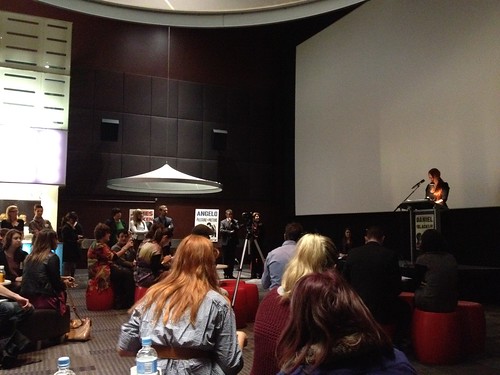“The only people we can think of as normal are those we don’t yet know very well.”
Tag Archives: mental health
Salvation Army Homelessness Report
The Salvation Army just released a report on their recent research into homeless in Australia. The study found the following:
- 155 Salvation Army homelessness services operate across Australia.
- More than 310,000 accommodation days were provided between 1 July 2012 and 31 December 2012
- 53% of women accessing Salvation Army SHS women’s services identified domestic and family violence as their main presenting issue.
- 44% of clients accessing Salvation Army SHS services identified housing affordability or housing crisis as their main presenting issue.
- One in five (20%) of clients accessing Salvation Army SHS services who provided information on their mental health have been diagnosed with a mental health issue.
- One out of every eight clients who accesses all Specialist Homelessness Services (SHS) in Australia accesses a Salvation Army service.
- 17% of Salvation Army clients identified financial difficulty as their main presenting issue.
- 25% of clients accessing Salvation Army homelessness services have been homeless for more than six months.
- Over 80% of Salvation Army SHS clients identified government support payments as their main source of income.
World Mental Health Day

10 October 2012
World Mental Health Day raises public awareness about mental health issues. The day promotes open discussion of mental disorders, and investments in prevention, promotion and treatment services. This year the theme for the day is “Depression: A Global Crisis”.
Depression affects more than 350 million people of all ages, in all communities, and is a significant contributor to the global burden of disease. Although there are known effective treatments for depression, access to treatment is a problem in most countries and in some countries fewer than 10% of those who need it receive such treatment.
(source: The World Health Organisation)

Fact: Not all homeless people are mentally ill
· Mental illness – such as schizophrenia – tends to first occur when people are young, at a stage when people are completing education or starting a career.Mental illness can seriously disrupt this process and lead to unstable job and housing careers.
· The majority of mentally ill people live in their own homes in the community and usually receive support from families and community health services.
· A recent study has shown that only 30% of homeless respondents had mental health problems prior to becoming homeless.
· There is evidence to suggest that being homeless impacts badly on people’s mental health – with 53% of homeless people in a recent study reporting that they developed mental health problems after becoming homeless.
(Source: The Mercy Foundation ‘Myths about homelessness’ fact sheet)
TED talk by Elyn Saks. She has schizophrenia is a law professor and mental health advocate.
“The humanity we all share, is more important than the mental illness we may not.”
[youtube http://www.youtube.com/watch?v=OWG1OeaGUrY?wmode=transparent&autohide=1&egm=0&hd=1&iv_load_policy=3&modestbranding=1&rel=0&showinfo=0&showsearch=0&w=500&h=375]
On the 24th of April we went to the launch of headspace’s new campaign.
headspace is the National Youth Mental Health Foundation, helping young people who are going through a tough time.
Approximately 14% of 12-17 year olds and 27% of 18-25 experience mental health or alcohol and substance use problems each year. Around 30% of homeless people are affected by mental health. Mental health is the single biggest health issue facing young Australians.
At the launch we heard from an amazing young women about her struggle with mental health and homelessness. She said that headspace gave her the ability to reach out and ask for help and provided her with the help she needed to navigate the murky waters.
For us at Urban Seed we have found that this: the ability to connect and have those who can help you is the way to make home. This leaves us with a pretty simple challenge, can we help create home for those around us by connecting and offering help when needed?
If you or someone you know is experiencing some mental health issues, go to headpsace.org.au

